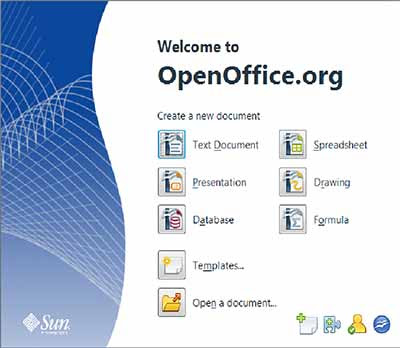
Below are some selected quotes from an excellent 28 October 2008 talk by science fiction / fantasy writer
Neil Gaiman (pictured above) on
piracy versus obscurity - given at a session for the
Open Rights Group, of whom he's patron. (I've transcribed those bits in full for the benefit of those who like me much
prefer, for things informational anyway, to have quickly-scannable text rather than slow, linear audio / video.)
He made some very good points about copyright in the digital age, in the context mainly of authors and book publishing, but also covering some broader, more general issues in relation to creatives / artists and their work.
The full audio recording of the session is well worth a listen. He's a very articulate and entertaining speaker as well as being one of my favourite writers ever - the Sandman and Death series are in my top 10 or 20, they're what persuaded me that comic books could, in fact, be true literature, and, while I rarely buy books these days, I have my own physical copies of almost all of his.
Here's the MP3 of the talk (click the arrow to stream it live, click the title to download; it's over 1 hour long in total):
Piracy Vs Obscurity: An Audience With Neil Gaiman, ORG talk, 24 October 2008
(recording also available in available in Ogg format).
(The sound quality is good but note that the microphone didn't pick up most of the questions from the audience during the Q&A (which started at about 33:30 for those interested), though it did record his answers.)
And here are some quotes from the session (for a taster, and to feed the search engines, bearing in mind that audio still isn't properly indexed or searchable). Unfortunately I can't deep link to the exact time spots in the recording as you now can with YouTube videos, so I've tried to indicate their approximate time positions (in "minutes : seconds" from the start).
Will electronic books replace books? Douglas Adams: "Books are sharks" (at 12:07)
Neil Gaiman discussed with writer Douglas Adams some 15 years ago the idea of e-books: did Douglas Adams think there was any chance that ebooks would replace books? He replied: "No".
"Books are sharks. There were sharks before dinosaurs and there are sharks now. And the reason that nothing has actually come along to replace the shark is, nothing is better at being a shark than a shark is. Nothing is better at being a book than a book is, given cost, given size, given what it takes to power it - mostly solar power! You can drop them without causing any major damage. And they're portable. And they're lightweight."
Neil thought that he had a point. Places where books tend to die tend to be those places where they're weighty and heavy, e.g. encyclopedias.
"...the experience of reading a book, at least at present, in book form, is more pleasant than reading on screen... there is a pleasure in the object. And as I said, quoting Douglas before, books are really good at being books, it's a marvelous invention that has evolved fairly well. They work. Do I worry? A little. Having said that, I think that if we ever get to the point where a book, a full colour, beautiful, wonderful book reading experience, is as good on some kind of device as it is in a book, then I will be selling an awful lot of those to people, and I will worry significantly less about the ones being passed around." (at 35:57)
But there was maybe just a teensy bit of a suggestion that, perhaps, if e-books do become as easy to use and practical as physical hardcopy paper books, authors might end up in a similar position to where musicians are today - needing to find new business models, ways to make money (merchandising, cover art etc?) other than by controlling access to copies of their works (don't forget that Shakespeare and Mozart made a living and produced great works in their day through patronage and commissions etc, without the benefit or incentive of any "copyright"!):
"...if we ever get into a world in which I'm essentially selling one copy of a book to people who immediately duplicate a million copies of it and do all the translations themselves and, you know, suddenly it's wikinovel world or whatever, I can go on the road, I can do readings - there's always stuff that you can do that nobody else can do, it's just the stuff that's more unique, which is always the nature of [the world]." (about 51:18)
"...it's certainly a hypothetical possible way that things could go, that books could return to what they were in the 17th and 18th century where you buy the insides of a book and then you take them to your leather binder who would bind it beautifully…" (about 52:23)
Is it bad for new writers to put their work out on the Internet? (from around 44:00)
It's always a hot topic, this: are you're shooting yourself in the foot if you "give" your work away for free by publishing it on the Net for anyone to read (or view or listen to) or download?
Well, Neil Gaiman made this point in the first part of his talk: how many people discovered their favourite author (all of whose books they've since bought) by randomly buying some book? The vast majority of people found their fave writer through being lent or given a book, or borrowing it from a library - or reading excerpts from their work on the internet, etc. In other words, through having first sampled the author's work (I'll come to sampling shortly below).
Here's what he said about the Net as a promotional / marketing device:
"I think the internet is the best promotional tool that new authors have ever had. You can tell new authors, because they tend to be convinced that people are going to steal their stuff and make fortunes out of it. ...I know it's logical, I know it makes sense, I know it is so obvious that if you're writing a novel and you put it out on the Web nobody would then buy it, but it's not true. It may be logical but the truth is, there are things out there... "Diary of a Wimpy Kid", which has been sitting on the American bestseller list now for the last 78 weeks, was a website thing, it was all out there, everything in that book has been up on the Web...
Again, it goes back to where I began this whole thing. The danger is not piracy, the danger is obscurity… I was a young writer. You had an incredibly small number of ways that you could get people to read your stuff and each of them had a gatekeeper who metaphorically had a very large three-headed dog, sharp weapons and was not interested. So you were going to have to get something through a gatekeeper in order to have a chance of getting it in front of people.
Now, there is no gatekeeper. There really isn't. You can get your writing in front of the world by posting it. All you have to be now is incredibly good and interesting and readable, which is a different challenge. But if I were a new writer right now, I would love this."
Now, from a diginomics viewpoint, putting your creative work up online can actually make economic sense for the creator (certainly when it's extracts or samples of your work) - see my post on why, based on standard principles of economics, DRM (in its current form) doesn't work and in fact encourages piracy, and why it's hard to make money from Web 2.0.
In this context, writings, music, art, movies or videos etc are what's known to economists as "experience goods": as a consumer you can't assess their value to you until you've experienced them, e.g. heard a song or seen a movie, so you're not willing to pay for it before you've tried it! That's why "sampling" or offering free trials or tasters in fact helps publishers persuade more people to buy the full final product (assuming it's any good, of course), and yet very few publishers provide samples.
That's the economic rationale, anyway. So, from an economics perspective, it's not in fact obvious or logical that putting your work out there on the Web will result in no one wanting to pay for your work. Quite the contrary. Posting your writings (or music, etc) online is an excellent way to provide samples to future customers, introducing them to your work and thereby hopefully enticing them to buy it (or more of it) in future. (Not that any publisher has approached me to write a book yet. I can but hope!)
What about public domain, copyright term and its extension (from about 53:19)
Brilliantly put:
"The problem with the ever retreating public domain is it's a very recent thing and it's been added and wiggled on… What do I think? It honestly depends on which side of the bed I get out of in the morning.. Mostly I think it's stupid and then occasionally I think, yeah, but.. and I think no, it really is stupid.
...copyright for life, I like that, that's good, that way you never turn around at the age of 60 and see something you've done out there everywhere and go "But I'm making no money out of this and here I am starving in my gutter" or whatever. I like copyright for life. I think copyright for life plus a bit is fine too.
I think copyright for life plus 50, which is where things used to be, was pushing it. I think copyright for life + 75, which is where things are now, is just wrong. Because it keeps things that should be part of the cultural dialogue out of the cultural dialogue. And it also gets really problematic and really really odd once you get past 1923, the points where you watch people re-copyrighting, that weirdness that'll happen when they'll go "OK we found the original manuscript so we're going to publish that now". It's not being published because it's better, it's not being published because the world needs it, it's not being published because it's urgent that everybody gets to see where every [] was, it's being published because… the corporate entity that's now publishing it now has a 90 year copyright on it that they didn't have before and stuff like that, so no, I think it's wrong.
I think you should be able to allow things into the cultural dialogue and I also think you have to balance that with compensating the creator for the creation - but life plus 75 is just.. how do I put this. I love the idea that the stuff that I write is going to feed my children. I'm not entirely sure that it needs to feed my grandchildren. And I think the idea of it feeding my great-grandchildren is foolish."
Miscellaneous things
"It is never going to get cheaper or more difficult to copy information. That genie has not only left the bottle, it's made a million other genies..." (33:30-ish)
After you publish something, does it remain yours, do you really "own" it? Are you actually giving anything away? Interesting philosophical discussion from about 38:50.
How Neil Gaiman feels about adaptations of his work - 56:33. (Anyone who wants to can freely make a movie or video of his writings, it seems! Good on him.)
Tags:
Open Rights Group, ORG, IP, intellectual property, diginomics, books, writing, writers, authors, music, musicians, creative arts, Neil Gaiman, Gaiman, Improbulus, A Consuming Experience





